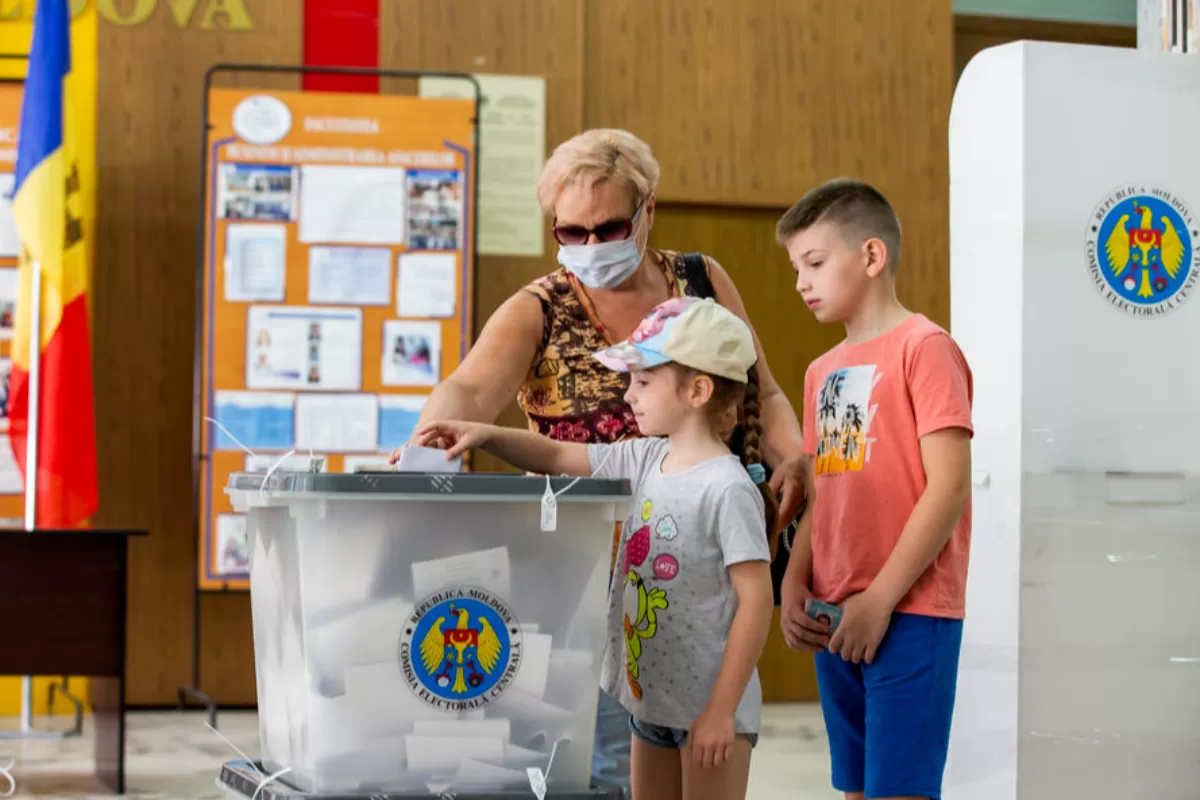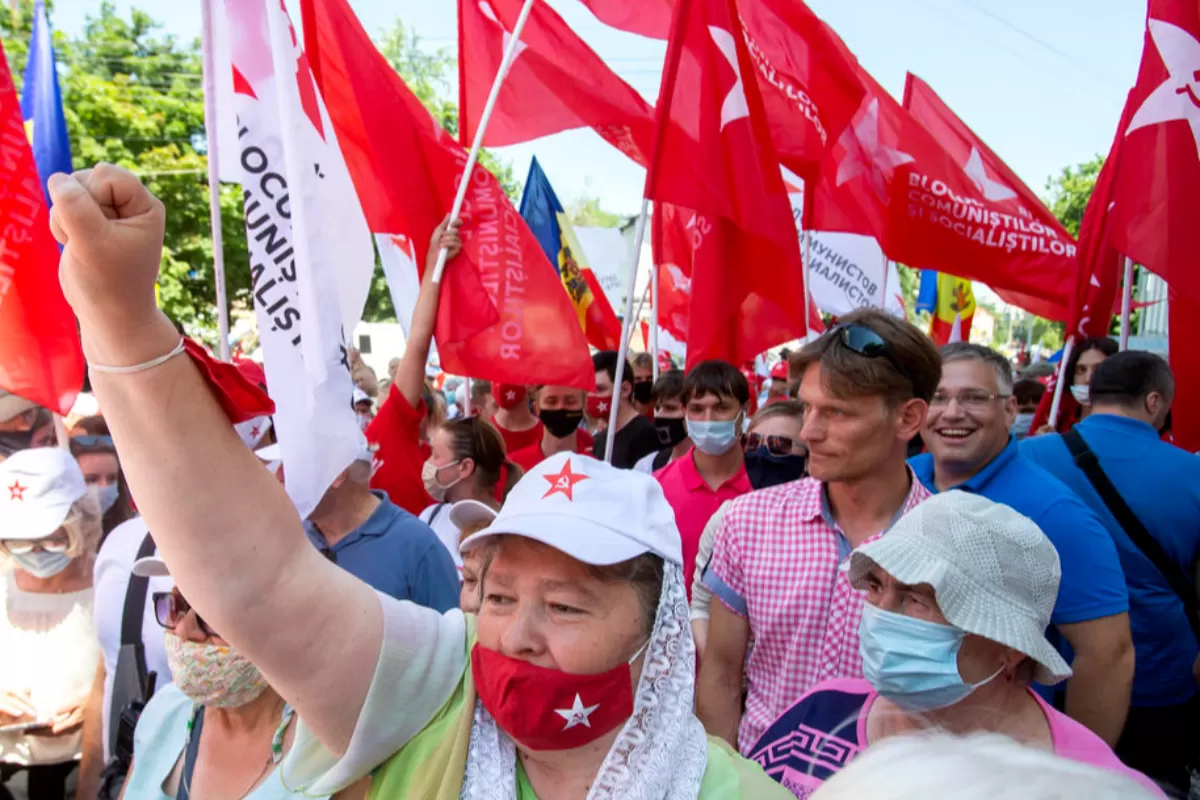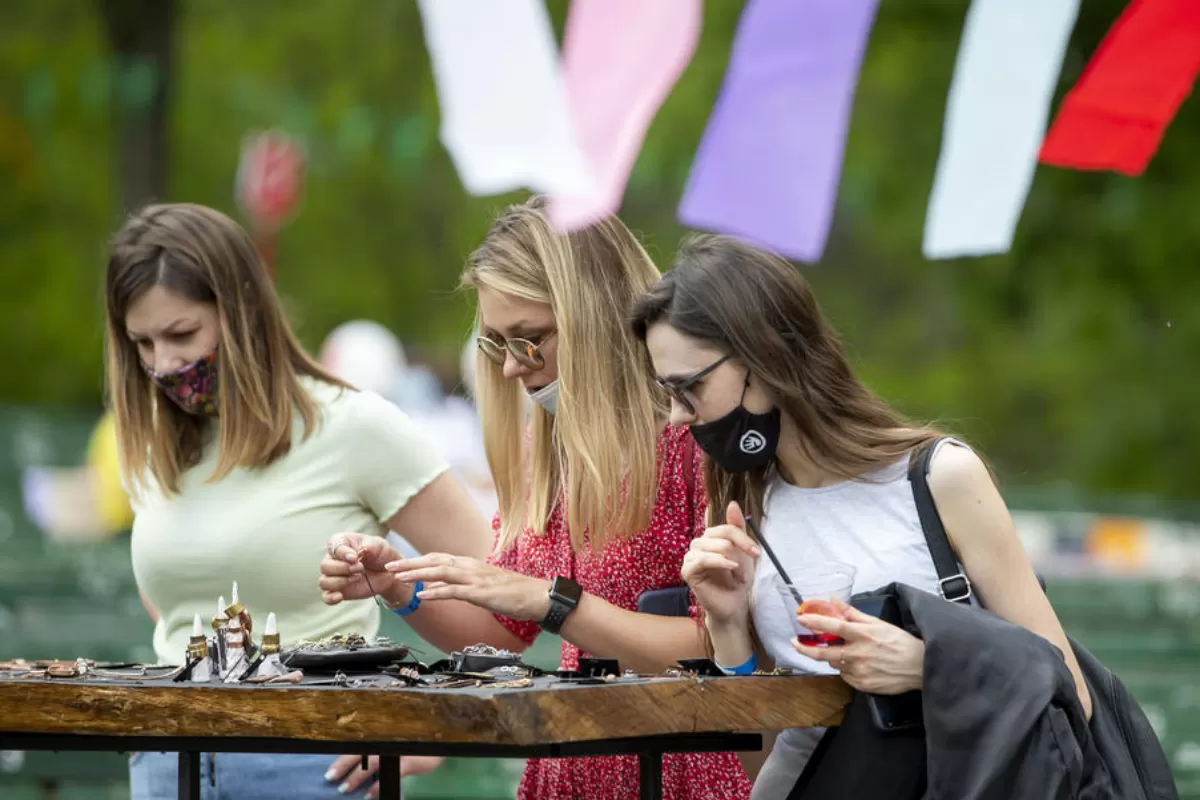
The alleged election fraud, including bribe-giving, was one of the hot topics in the Republic of Moldova on election day. While media outlets siding with pro-European parties revealed alleged cases of bribe reported on the left bank of the Dniester, the pro-Socialist press focused on offenses reported abroad. One the main “arguments” about influencing voters in the Diaspora was a short video filmed by a young girl queuing outside a polling station in Frankfurt, Germany. In the background one can hear a few people talking and laughing, mentioning 50 Euro. A large number of press institutions affiliated to the Socialists carried the piece of news, suggesting the video is evidence that voters got bribed. The person who shot the video subsequently said it was all a joke, and that the media made erroneous assumptions.

Much like most other election campaigns in the Republic of Moldova, this summer’s campaign for the parliamentary election of July 11 was ridden with disputes which, at times, went way beyond the limits of common decency. We’ve seen controversial figures getting the spotlight, a great deal of disinformation, and we’ve had our fair share of extraordinary and laughable moments. Foreign policy was, once again, a major topic of debate. Less than 30 years since Moldova proclaimed its independence, it’s still unclear whether the country is headed West or East. Another recurring theme in this campaign was the fight against corruption, which has been discussed for years, without seemingly rooting out the weed of corruption that has spread to the point of nearly suffocating the whole country. Veridica has reviewed some of the topics, episodes and characters that grabbed the headlines during this election campaign.

According to the media affiliated with the Socialists, 85% of the Action and Solidarity Party candidates in the early parliamentary elections are members of PLDM and the real head of the party is the former prime minister convicted of corruption, Vlad Filat, who is also guiding Maia Sandu. The source of this news is a statement by the communist Vladimir Voronin, who has recently returned to the forefront of politics. Only seven PAS candidates have previously competed on the PLDM lists, but former PLDM members can be found in over a third of the lists of candidates in general. This phenomenon of party-switching characterizes other parties as well. Even communists, for instance, are currently running on the lists of other parties, including some that have diametrically opposed political views.

The non-governmental organizations funded from the West are directly involved in the election campaign in the Republic of Moldova, according to an article published by Rubaltic.ru, which largely takes over the theories used in the presidential campaign by the Socialist Bogdan Țîrdea. The attack on civil society is in fact targeting the Action and Solidarity Party, the Socialists' main contender in the early parliamentary elections of 11 July.

A Google search returns dozens of headlines in the press in the Republic of Moldova and Romania such as “the Republic of Moldova, at a crossroads”, starting 2009 and, especially, around the elections. Dozens of other similar headlines were probably written before 2009 as well, only they remained in the newsrooms’ archives, without being posted online. The point is that little has changed in the Republic of Moldova durig the past decade and just as little in the past two decades or in the 30 years since Independence. And every election is viewed by citizens not only with the hope that things will change, but also with the fear that if the “others” come, they will turn everything 180 degrees (or 380, as a former Speaker of Parliament once said).

Pro-Socialist media seeks to link migration to Maia Sandu’s presidency, by citing a study on current trends. However, the phenomenon is one that has started more than two decades ago, and statistics show that its magnitude has been the same for the past 5 years, an interval that also covers the presidential term of Socialist leader Igor Dodon.

Seven months after a complicated presidential election, the Republic of Moldova is again in the grip of election fever. This time around, the country will be hosting snap parliamentary elections, but the background, protagonists and stakes are mostly the same. The main battle will be pitting the center-right pro-Western Action and Solidarity Party (PAS), previously led by president Maia Sandu, against the center-left pro-Russian Party of Socialists (PSRM) led by the former president Igor Dodon.